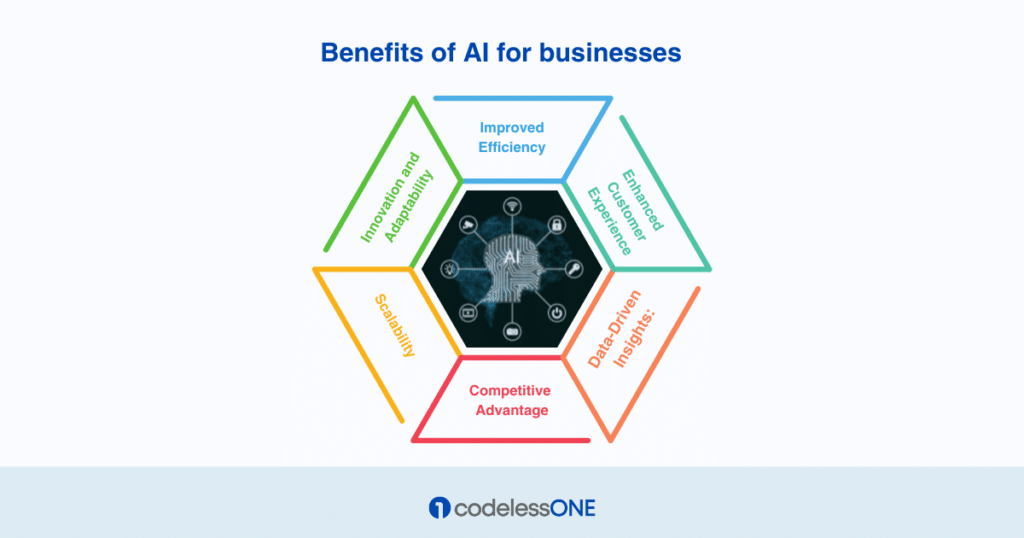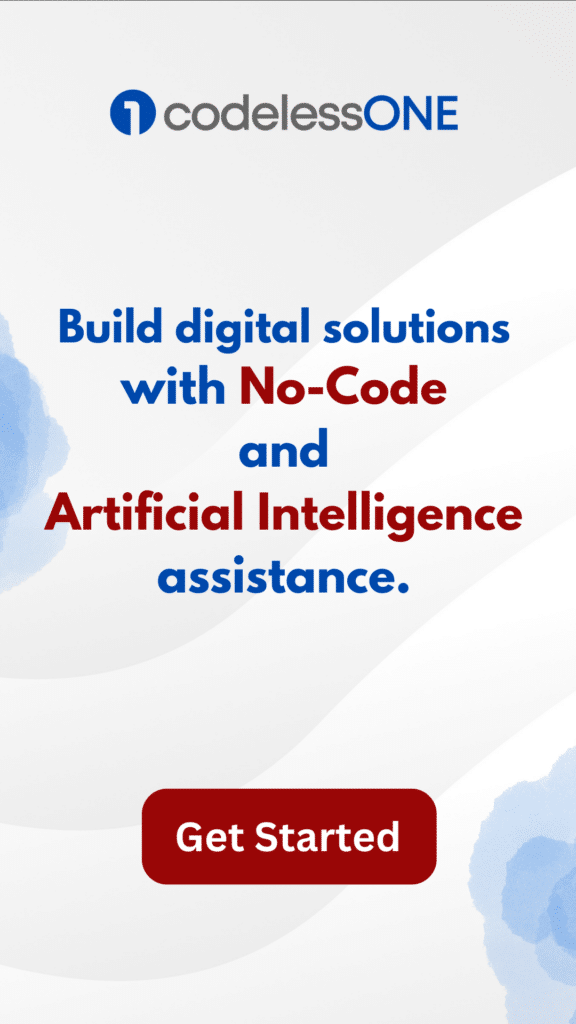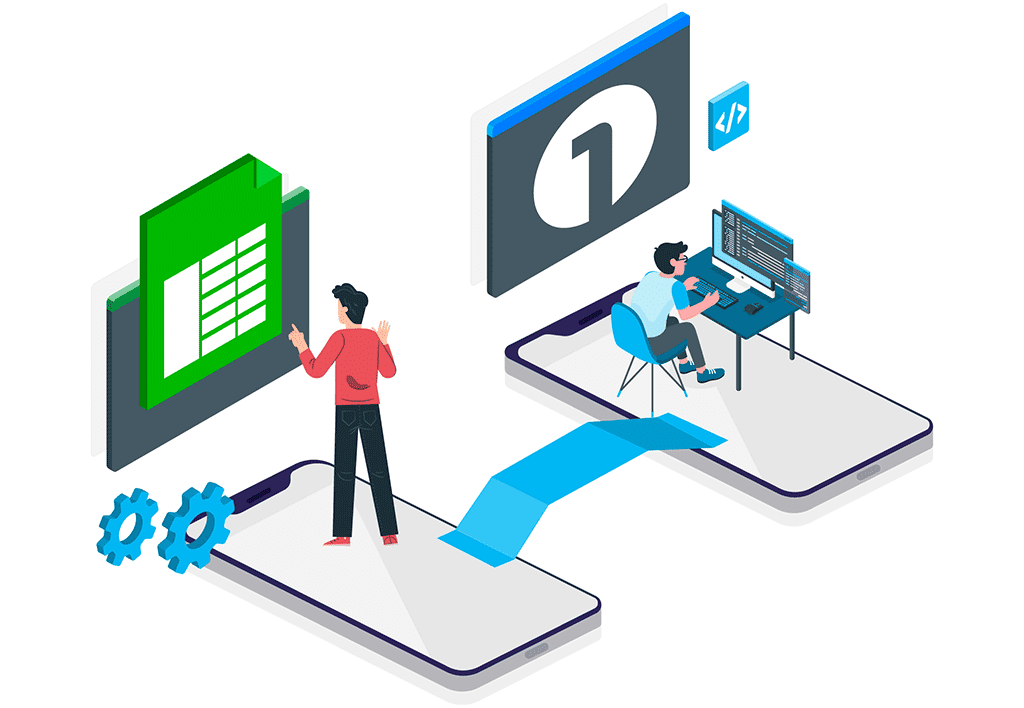How can Artificial Intelligence (AI) impact business growth in 2024

In 2023, Artificial Intelligence (AI) has the potential to drive significant business growth by revolutionizing the way organizations operate, make decisions, and engage with customers.
AI combined with no-code technology can drive business growth in several ways. It can enhance operational efficiency by automating repetitive tasks, optimizing workflows, and streamlining processes.
Using AI leads to cost savings, improved productivity, and faster turnaround times. AI-powered data analytics provide businesses valuable insights into customer behaviour, market trends, and operational performance, enabling data-driven decision-making and identifying growth opportunities.
AI also plays a crucial role in improving business management collaboration. Businesses can build solutions to manage various functions of their organization by leveraging AI technologies, thus leading to higher efficiency and reduced dependency on IT.
Why Should Businesses Embrace Artificial Intelligence (AI) as a Key Driver of Growth?

Businesses should embrace AI as a critical growth driver because it can transform operations, improve decision-making, and create a competitive advantage. One notable aspect is that it eliminates the need for extensive coding knowledge, making it accessible and beneficial for businesses of all sizes. AI offers numerous benefits without requiring coding expertise:
1 Improved Efficiency:
Automate tasks, optimize processes, and reduce human errors, increase efficiency and cost savings. Businesses can leverage AI-powered tools and platforms that come with pre-built algorithms and interfaces, eliminating the need for coding from scratch.
2. Enhanced Customer Experience:
AI enables businesses to deliver personalized and tailored customer experiences, fostering loyalty, engagement, and customer satisfaction. Through AI-based customer relationship management (CRM) systems or chatbots, businesses can interact with customers seamlessly without complex coding.
3. Data-Driven Insights:
AI-powered data analytics and machine learning algorithms help businesses analyze vast amounts of data, uncover patterns, and gain valuable insights for informed decision-making. These tools often provide intuitive interfaces or dashboards that don’t require coding skills to operate effectively.
4. Competitive Advantage:
Businesses that effectively harness AI gain a competitive edge by leveraging advanced technologies, delivering superior customer experiences, and optimizing their operations. The availability of user-friendly AI platforms and tools allows businesses to leverage AI without extensive coding knowledge, levelling the playing field.
5. Innovation and Adaptability:
Enable businesses to innovate by building solutions for their business, identifying market trends, understanding customer preferences, and developing new products or services to meet evolving demands. With AI tools that offer intuitive interfaces and automated processes, businesses can explore new ideas and concepts without relying heavily on coding expertise.
6. Scalability:
AI systems can handle large volumes of data and customer interactions, allowing businesses to scale their operations efficiently. By utilizing AI platforms with built-in scalability features, businesses can expand their AI initiatives without requiring extensive coding or infrastructure adjustments.
What is the use of Artificial Intelligence in business?
Artificial intelligence (AI) can be applied to various business functions across different industries, revolutionizing how organizations operate and make decisions. Here are some examples of how AI can be used in other business functions:
1. Build business apps:
Business owners and their teams can use AI-powered platforms like Codeless ONE to build business management apps in minutes without any coding. These solutions can help streamline business functions, reduce silos and reduce dependency on software developers.
2. Customer Service and Support:
AI-powered chatbots and virtual assistants can provide instant responses to customer inquiries, assisting with basic queries and issue resolution.
Natural Language Processing (NLP) algorithms enable AI systems to understand and respond to customer messages and emails, improving customer service efficiency.
3. Sales and Marketing
Users can study customer data with AI tools to identify patterns and preferences, enabling personalized marketing campaigns and targeted product recommendations.
Predictive analytics can help businesses forecast customer demand, optimize pricing strategies, and identify potential leads for sales teams.
4. Operations and Supply Chain Management:
Optimize inventory management by analyzing historical data, demand patterns, and market trends, ensuring efficient stock levels and reducing costs.
Monitor equipment performance and detect anomalies, enabling proactive maintenance to minimize downtime.
5. Human Resources:
Automate the recruitment process by using machine learning algorithms to screen resumes, identify suitable candidates, and conduct initial assessments.
AI-powered systems can assist in employee onboarding, providing information and answering common questions to streamline the process.
6. Financial Analysis and Risk Management:
Analyze financial data and market trends to provide insights for investment decisions and portfolio management.
Machine learning models can assess creditworthiness, fraud detection, and risk assessment, improving financial institutions’ risk management processes.
7. Product Development and Research:
Study market data, customer feedback, and competitor information to identify market trends and inform product development strategies.
Natural language processing can assist in analyzing research papers, scientific literature, and patents to accelerate the research and development process.
8. Data Analysis and Business Intelligence:
Analytics tools can process large volumes of data, extract insights, and generate visualizations, providing actionable information for decision-making.
AI algorithms can identify patterns and anomalies in data, helping businesses detect fraud, optimize operations, and make data-driven decisions.
9. Cybersecurity:
AI can enhance cybersecurity measures by identifying and responding to potential threats in real-time, analyzing network traffic patterns, and detecting anomalies or malicious activities.
These examples demonstrate the versatility of AI across various business functions. By leveraging AI technologies and tools, organizations can optimize operations, improve decision-making, enhance customer experiences, and gain a competitive edge in today’s digital landscape.
Codeless ONE is one such powerful AI powered no-code development platform that can be used to build business apps without any technical expertise. It will reduce dependency on software developers and reduce app building time and cost drastically. Codeless ONE also provides more than 100 ready to use business apps that can be customized as per need in minutes. By automating tasks, enhancing collaboration, centralizing data, and enabling data-driven decision-making, this software streamlines your operations and boosts overall efficiency.
Get your business apps running in minutes.
Book a free personalized demo now.






